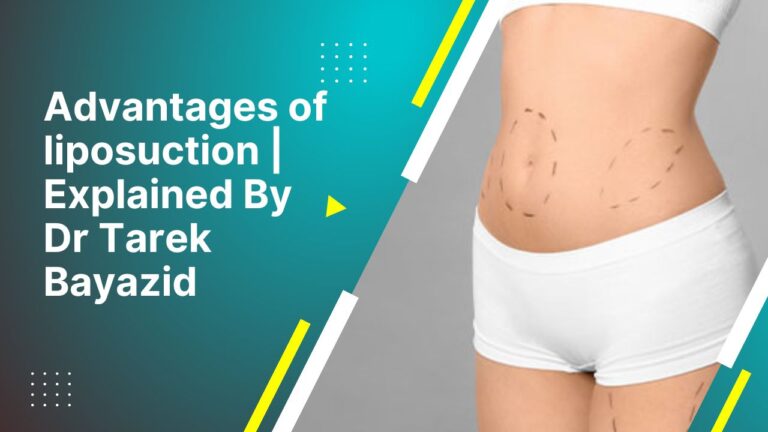Liposuction is a popular cosmetic procedure known for its ability to remove unwanted fat. But can liposuction help insulin resistance, and does liposuction improve insulin resistance? This article explores the potential benefits of liposuction for metabolic health and its impact on insulin sensitivity.
Understanding the Relationship Between Fat Removal and Insulin Sensitivity
Liposuction primarily targets subcutaneous fat, the layer of fat just beneath the skin. While this procedure is effective for body contouring, its impact on insulin sensitivity is a topic of growing interest. Insulin resistance occurs when cells in the body become less responsive to insulin, leading to elevated blood sugar levels. By removing fat, liposuction may influence how the body processes insulin.
Targeted Fat Extraction is a way to remove fat from specific body parts
it helps people shape their body by taking out unwanted fat in chosen areas
Potential Benefits of Liposuction for Metabolic Health
Liposuction may offer metabolic benefits beyond aesthetic improvements. Some studies suggest that reducing fat mass can enhance insulin sensitivity, potentially lowering the risk of developing type 2 diabetes. However, the extent of these benefits can vary based on individual factors such as the amount of fat removed and the patient’s overall health.
- Improved Insulin Sensitivity: Some research indicates that liposuction can lead to a significant improvement in insulin sensitivity.
- Reduced Risk of Diabetes: By enhancing insulin function, liposuction may help lower the risk of diabetes in certain individuals.
- Enhanced Metabolic Health: Overall metabolic health may improve with the reduction of fat mass.
The Science Behind Liposuction and Insulin Resistance
Understanding the science behind liposuction and insulin resistance involves examining how different types of fat affect insulin function. Visceral fat, which surrounds internal organs, is more closely linked to insulin resistance than subcutaneous fat.
Book A Consultation With Dr Tarek Bayazid
Top-rated Plastic Surgeon For Liposuction in Dubai
Installment Plan Available
How Visceral Fat Affects Insulin Function
Visceral fat is metabolically active and can release inflammatory substances that interfere with insulin action. While liposuction primarily targets subcutaneous fat, reducing overall body fat may indirectly influence visceral fat levels and improve insulin sensitivity.
Impact of Subcutaneous Fat Removal on Metabolic Markers
Removing subcutaneous fat through liposuction can lead to changes in metabolic markers. Some studies have shown improvements in insulin sensitivity and other metabolic parameters following the procedure. However, these effects may be temporary and require lifestyle changes to maintain.
- Changes in Metabolic Markers: Liposuction can lead to improvements in insulin sensitivity and other metabolic markers.
- Temporary Effects: The metabolic benefits of liposuction may be short-lived without accompanying lifestyle changes.
- Indirect Influence on Visceral Fat: While liposuction targets subcutaneous fat, it may indirectly affect visceral fat levels.
Liposuction Techniques for Targeting Insulin-Resistant Fat
Different liposuction techniques can be used to target fat associated with insulin resistance. Traditional liposuction methods have evolved, and advanced techniques offer more precision in fat removal.
Traditional Liposuction vs. Advanced Methods
Traditional liposuction involves the removal of fat through suction, while advanced methods like laser-assisted liposuction offer more targeted fat reduction. These advanced techniques may provide better outcomes for individuals with insulin resistance by precisely targeting problem areas.
Precision Fat Removal and Its Effects on Insulin Sensitivity
Precision fat removal techniques can enhance the metabolic benefits of liposuction. By focusing on specific areas of fat accumulation, these methods may lead to more significant improvements in insulin sensitivity.
- Advanced Techniques: Laser-assisted and ultrasound-assisted liposuction offer more precise fat removal.
- Targeted Fat Reduction: Precision techniques can focus on areas most associated with insulin resistance.
- Enhanced Outcomes: Advanced methods may lead to better metabolic outcomes compared to traditional liposuction.
Metabolic Improvements After Liposuction
The metabolic improvements following liposuction can vary between individuals. Understanding the short-term and long-term effects of insulin resistance is crucial for evaluating the procedure’s benefits.
Short-Term vs. Long-Term Effects on Insulin Resistance
In the short term, liposuction may lead to improvements in insulin sensitivity. However, maintaining these benefits in the long term often requires lifestyle changes such as diet and exercise.
Case Studies and Clinical Research Findings
Clinical research has provided insights into the metabolic effects of liposuction. Some studies have reported significant improvements in insulin sensitivity, while others highlight the need for additional interventions to sustain these benefits.
- Short-Term Improvements: Initial improvements in insulin sensitivity are often observed after liposuction.
- Long-Term Maintenance: Sustaining metabolic benefits requires ongoing lifestyle changes.
- Research Insights: Clinical studies offer mixed results, emphasizing the need for personalized approaches.
Combining Liposuction with Lifestyle Changes for Optimal Results
For optimal results, liposuction should be combined with lifestyle changes. Diet and exercise play a crucial role in maintaining insulin sensitivity after fat removal.
Diet and Exercise Recommendations Post-Procedure
Following liposuction, adopting a healthy diet and regular exercise routine can help maintain the metabolic benefits. A balanced diet rich in whole foods and regular physical activity can enhance insulin sensitivity and overall health.
Maintaining Insulin Sensitivity After Fat Removal
To maintain insulin sensitivity after liposuction, individuals should focus on sustainable lifestyle changes. This includes monitoring dietary habits, engaging in regular physical activity, and managing stress levels.
- Healthy Diet: Emphasize whole foods, lean proteins, and healthy fats.
- Regular Exercise: Incorporate both aerobic and strength-training exercises.
- Stress Management: Practice stress-reducing techniques such as meditation or yoga.
Does Liposuction Permanently Improve Insulin Resistance?
Liposuction can lead to improvements in insulin sensitivity, but these effects may not be permanent. Long-term outcomes depend on various factors, including lifestyle changes and ongoing metabolic health management.
Factors Influencing Long-Term Outcomes
Several factors can influence the long-term outcomes of liposuction on insulin resistance. These include the amount of fat removed, the patient’s overall health, and their commitment to maintaining a healthy lifestyle.
The Importance of Ongoing Metabolic Health Management
Ongoing management of metabolic health is essential for sustaining the benefits of liposuction. Regular check-ups, a balanced diet, and consistent exercise are crucial for long-term success.
- Amount of Fat Removed: The extent of fat removal can impact long-term outcomes.
- Overall Health: A patient’s health status plays a role in sustaining benefits.
- Lifestyle Commitment: Long-term success requires a commitment to healthy living.
How Much Fat Needs to Be Removed to Impact Insulin Resistance?
The amount of fat that needs to be removed to impact insulin resistance varies among individuals. Optimal fat reduction targets should be personalized based on the patient’s unique metabolic profile.
Optimal Fat Reduction Targets for Metabolic Benefits
Determining the optimal amount of fat to remove for metabolic benefits requires a personalized approach. Factors such as body composition, health status, and individual goals should be considered.
Individualized Approaches to Liposuction for Insulin Resistance
An individualized approach to liposuction can enhance its effectiveness for insulin resistance. Tailoring the procedure to the patient’s specific needs can lead to better outcomes.
- Personalized Targets: Fat reduction targets should be tailored to individual needs.
- Consider Body Composition: Body composition and health status influence optimal targets.
- Customized Approach: A personalized approach enhances the procedure’s effectiveness.
Are There Any Risks Associated with Liposuction for Insulin Resistance?
Liposuction, like any surgical procedure, carries potential risks and complications. Understanding these risks is essential for ensuring safe outcomes.
Potential Complications and Side Effects
Potential complications of liposuction include infection, scarring, and changes in skin sensation. Patients should be aware of these risks and discuss them with their healthcare provider.
Screening and Patient Selection for Safe Outcomes
Proper screening and patient selection are crucial for minimizing risks associated with liposuction. Candidates should be evaluated based on their health status and suitability for the procedure.
- Infection Risk: Infection is a potential complication of liposuction.
- Scarring and Sensation Changes: Scarring and changes in skin sensation may occur.
- Patient Evaluation: Proper screening ensures safe outcomes.
Alternative Treatments for Insulin Resistance
While liposuction may offer benefits for insulin resistance, alternative treatments are also available. Comparing liposuction to other interventions can help individuals make informed decisions.
Comparing Liposuction to Other Interventions
Alternative treatments for insulin resistance include lifestyle modifications, medications, and other medical procedures. Each option has its benefits and limitations.
Integrative Approaches to Managing Insulin Sensitivity
An integrative approach to managing insulin sensitivity may involve combining liposuction with other treatments. This holistic strategy can enhance overall metabolic health.
- Lifestyle Modifications: Diet and exercise are key components of managing insulin resistance.
- Medications: Certain medications can improve insulin sensitivity.
- Holistic Strategies: Combining treatments can enhance metabolic health.
The Role of Hormones in Fat Distribution and Insulin Resistance
Hormones play a significant role in fat distribution and insulin resistance. Understanding how liposuction affects hormone balance is essential for evaluating its impact on metabolic health.
How Liposuction Affects Hormone Balance
Liposuction can influence hormone levels by altering fat distribution. Changes in hormone balance may impact insulin sensitivity and overall metabolic health.
Addressing Hormonal Factors for Sustained Improvements
Addressing hormonal factors is crucial for sustaining improvements in insulin resistance. A comprehensive approach that considers hormonal balance can enhance the benefits of liposuction.
- Hormone Influence: Hormones affect fat distribution and insulin sensitivity.
- Impact on Hormone Levels: Liposuction can alter hormone balance.
- Comprehensive Approach: Addressing hormonal factors enhances outcomes.
Liposuction and Diabetes Management
Liposuction may offer potential benefits for individuals with type 2 diabetes. Understanding these benefits and considerations is important for diabetic patients seeking the procedure.
Potential Benefits for Type 2 Diabetes Patients
For type 2 diabetes patients, liposuction may improve insulin sensitivity and glycemic control. However, these benefits should be weighed against potential risks.
Considerations for Diabetic Individuals Seeking Liposuction
Diabetic individuals considering liposuction should consult with their healthcare provider. Proper evaluation and management are essential for ensuring safe and effective outcomes.
- Improved Glycemic Control: Liposuction may enhance glycemic control in diabetic patients.
- Risk-Benefit Analysis: Benefits should be weighed against potential risks.
- Healthcare Consultation: Diabetic patients should consult with their provider.
Recovery and Aftercare Following Liposuction for Insulin Resistance
Proper recovery and aftercare are crucial for optimizing results after liposuction. Following post-procedure guidelines can enhance metabolic health during recovery.
Post-Procedure Guidelines for Optimizing Results
Adhering to post-procedure guidelines can help optimize the results of liposuction. This includes following a healthy diet, engaging in regular exercise, and attending follow-up appointments.
Monitoring Metabolic Health During Recovery
Monitoring metabolic health during recovery is essential for maintaining the benefits of liposuction. Regular check-ups and lifestyle adjustments can support long-term success.
- Healthy Diet and Exercise: Follow a balanced diet and regular exercise routine.
- Follow-Up Appointments: Attend follow-up appointments for ongoing evaluation.
- Lifestyle Adjustments: Make necessary lifestyle changes for long-term success.
Customized Treatment Plans with Dr. Tarek
Dr. Tarek offers personalized assessments and treatment plans for individuals considering liposuction for insulin resistance. His expertise ensures tailored care and long-term support.
Personalized Assessments for Insulin Resistance and Liposuction
Dr. Tarek provides personalized assessments to evaluate insulin resistance and determine the most suitable liposuction approach. This individualized care enhances the procedure’s effectiveness.
Follow-Up Care and Long-Term Support
Dr. Tarek emphasizes the importance of follow-up care and long-term support. His comprehensive approach ensures patients receive ongoing guidance for maintaining metabolic health.
- Individualized Care: Personalized assessments enhance treatment effectiveness.
- Comprehensive Approach: Follow-up care and support are integral to long-term success.
- Expert Guidance: Dr. Tarek provides expert guidance for maintaining health.ce)
Stats:
– According to a study published in the New England Journal of Medicine, large-volume liposuction can lead to an 18% improvement in insulin sensitivity in obese women.
(Source: https://www.nejm.org/doi/full/10.1056/NEJMoa040416 )
– Research from the American Diabetes Association shows that removing 20% of subcutaneous abdominal fat through liposuction can result in a 52% improvement in insulin sensitivity.
(Source: https://diabetes.diabetesjournals.org/content/53/8/2032 )
FAQ’s
1. What is insulin resistance, and how does it affect the body?
Insulin resistance occurs when the body’s cells don’t respond effectively to insulin, a hormone that regulates blood sugar levels. This condition can lead to elevated blood sugar levels and is often associated with conditions like obesity, type 2 diabetes, and metabolic syndrome.
2. How does liposuction work, and can it improve insulin resistance?
Liposuction is a cosmetic procedure that removes excess fat from specific areas of the body. While it is not a treatment for insulin resistance, some studies suggest that reducing visceral fat through weight loss can improve insulin sensitivity. However, liposuction typically targets subcutaneous fat, which may not significantly impact insulin resistance.
3. Is there scientific evidence linking liposuction to improved insulin sensitivity?
Research indicates that liposuction alone may not directly improve insulin resistance, as it does not address metabolic factors or lifestyle changes. However, combining liposuction with a healthy diet and exercise can enhance overall health and potentially improve insulin sensitivity over time.
4. Are there alternative treatments for insulin resistance?
Yes, insulin resistance can often be managed through lifestyle changes such as a balanced diet, regular physical activity, and weight loss. Medications like metformin may also be prescribed by healthcare professionals to improve insulin sensitivity.
5. Who should consider liposuction, and is it a solution for metabolic health issues?
Liposuction is best suited for individuals seeking cosmetic improvements and body contouring, not as a solution for metabolic health issues like insulin resistance. Those with metabolic concerns should consult a healthcare provider for appropriate treatments tailored to their condition.








